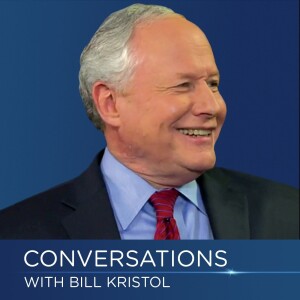
Conversations with Bill Kristol
News:Politics

Diana Schaub on Lincoln’s Political Thought: The Lyceum Address and The Gettysburg Address
 2019-07-27
2019-07-27
Download
Right click and do "save link as"
The speeches of Abraham Lincoln are well known for their enduring importance in the history of the United States. But they also remain incredibly significant as texts—works of political rhetoric that have much to teach us about the nature of politics and the American regime. In this Conversation with Bill Kristol, Diana Schaub, a professor of political science at Loyola University Maryland and a preeminent scholar of American political thought, demonstrates the depth of Lincoln’s speeches through an interpretation of two of his greatest orations: “The Lyceum Address” (1838) and “The Gettysburg Address” (1863). Schaub considers “The Lyceum Address” as a profound reflection on the dangers of democracy and why “rational reverence” for the law will be indispensable for the perpetuation of America’s political institutions. In a magnificent interpretation of the “The Gettysburg Address,” she explains how, for Lincoln, the Civil War was a trial not only about the future of the United States, but about the very possibility of self-government. This is a must-listen Conversation for anyone interested in American history, political philosophy, and statesmanship.
view more
More Episodes
Ray Takeyh on 10/7, Hamas, and Iran
 2023-11-17
2023-11-17
 2023-11-17
2023-11-17
Eric Edelman on the New World Disorder
 2023-10-31
2023-10-31
 2023-10-31
2023-10-31
Fred Kagan on Ukraine: Where Things Stand
 2023-09-29
2023-09-29
 2023-09-29
2023-09-29
Stephen Rosen on the China Challenge
 2023-09-07
2023-09-07
 2023-09-07
2023-09-07
Leah Boustan on Immigration: Then and Now
 2023-05-31
2023-05-31
 2023-05-31
2023-05-31
012345678910111213141516171819
Create your
podcast in
minutes
- Full-featured podcast site
- Unlimited storage and bandwidth
- Comprehensive podcast stats
- Distribute to Apple Podcasts, Spotify, and more
- Make money with your podcast
It is Free
- Privacy Policy
- Cookie Policy
- Terms of Use
- Consent Preferences
- Copyright © 2015-2024 Podbean.com




